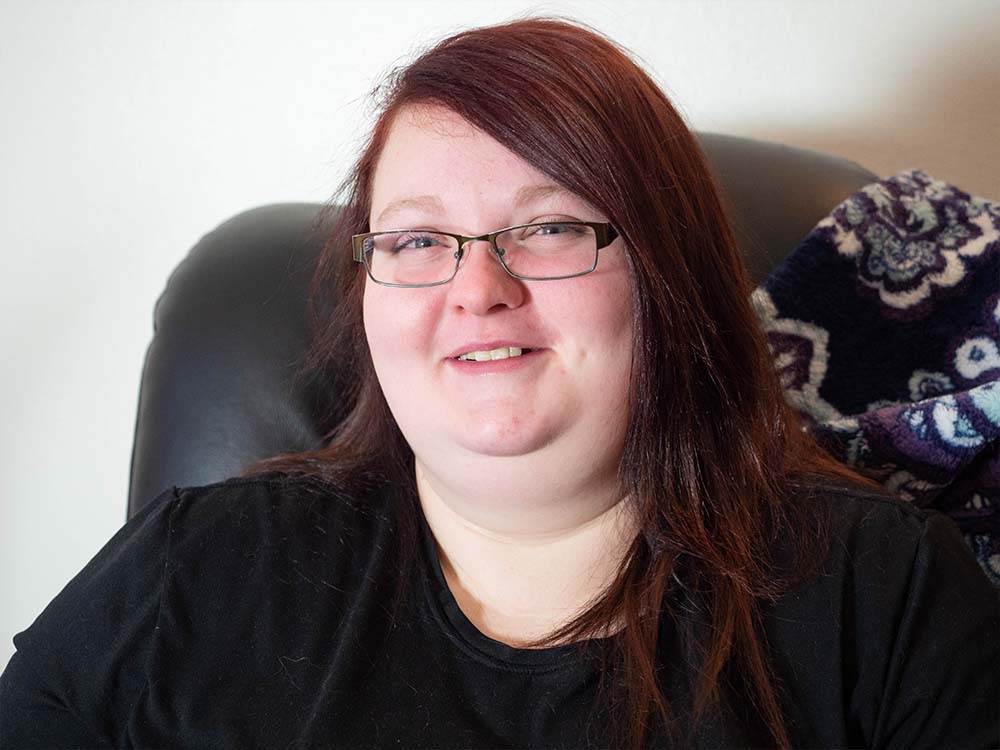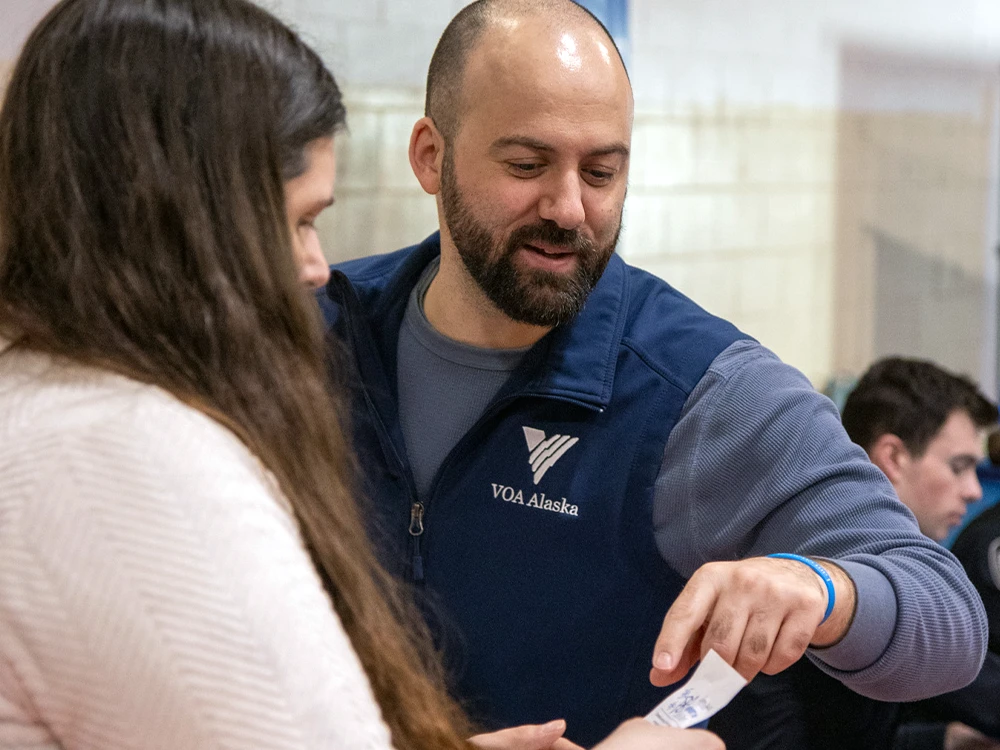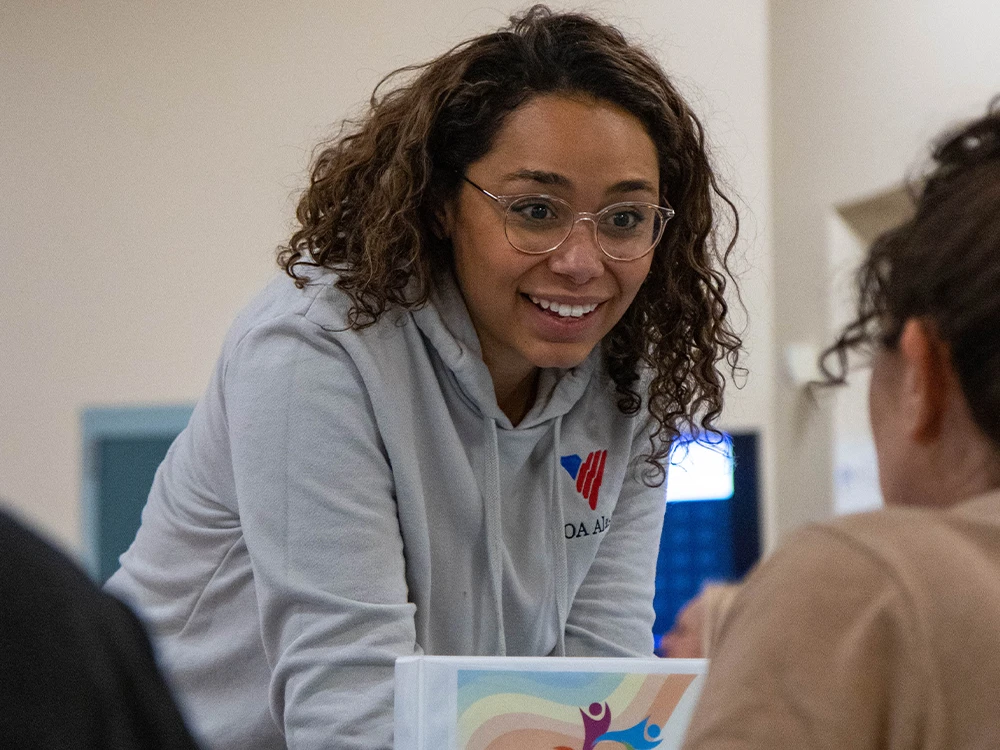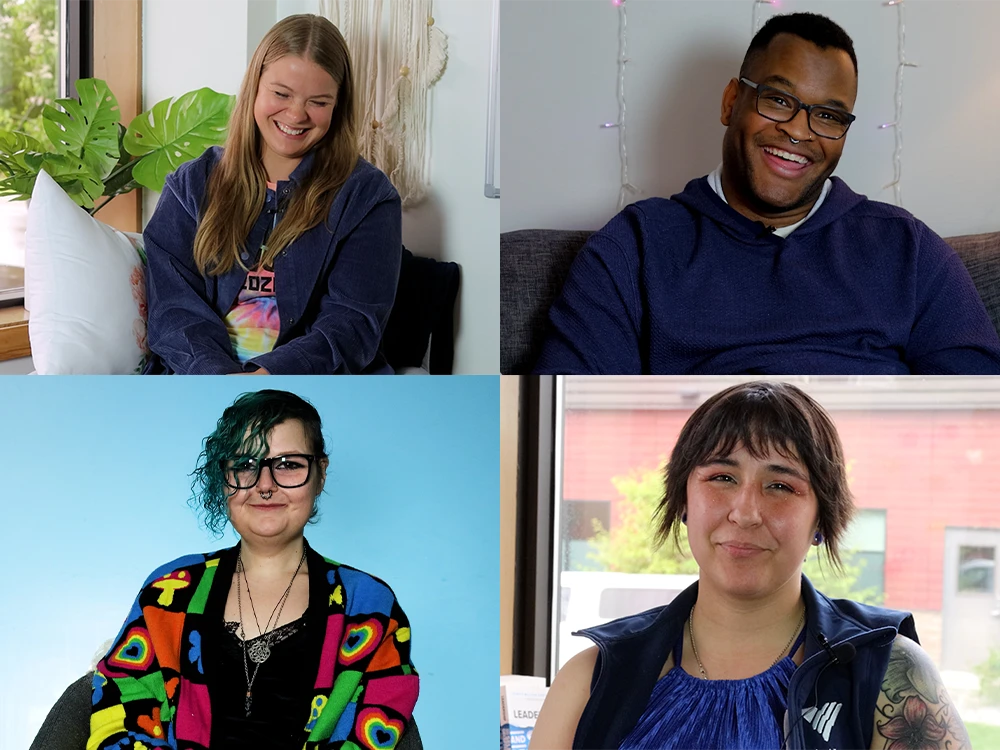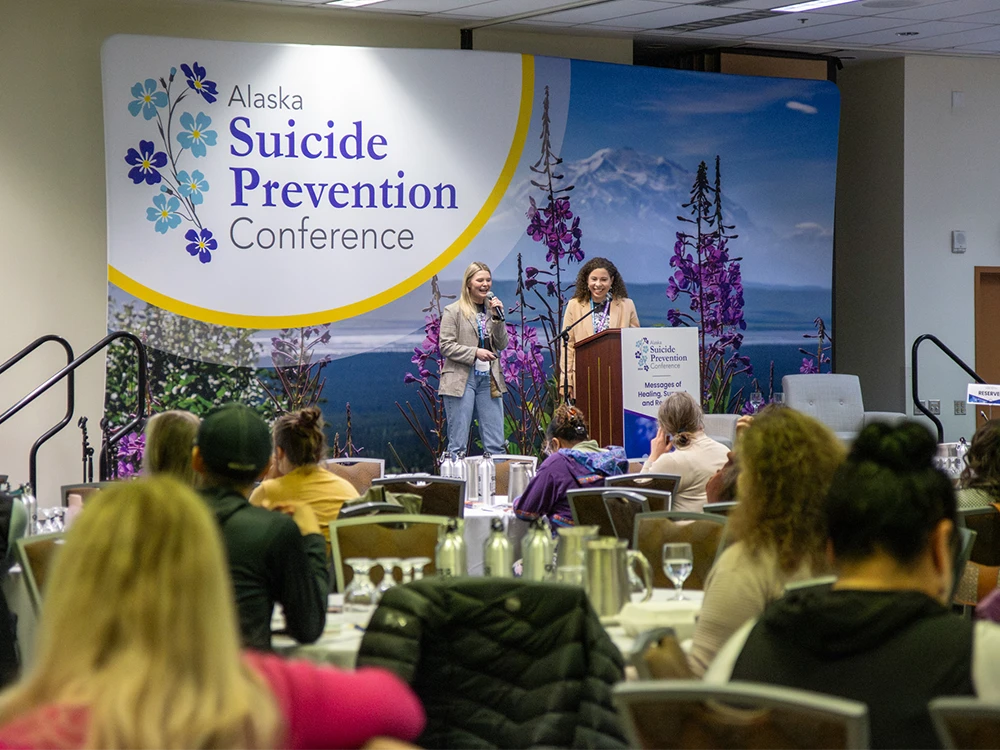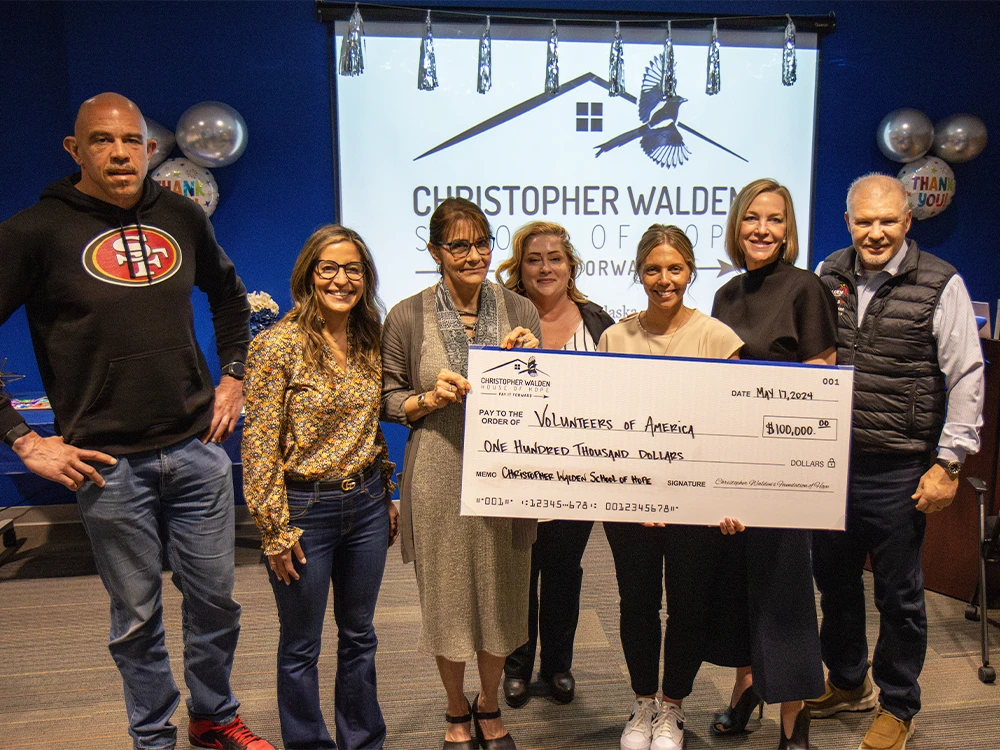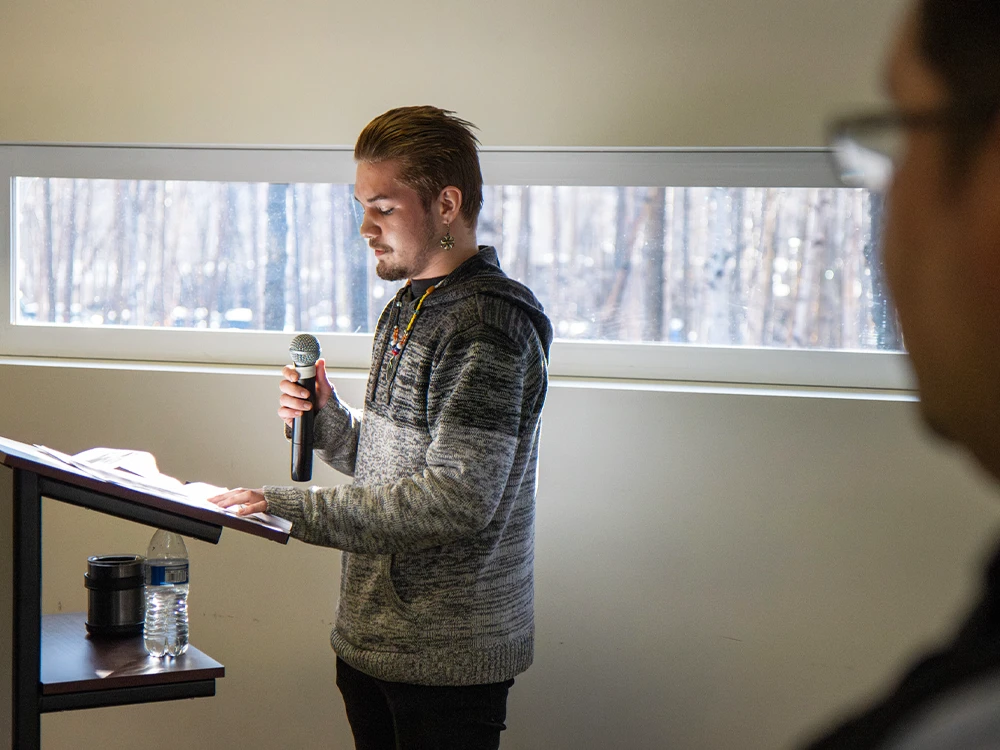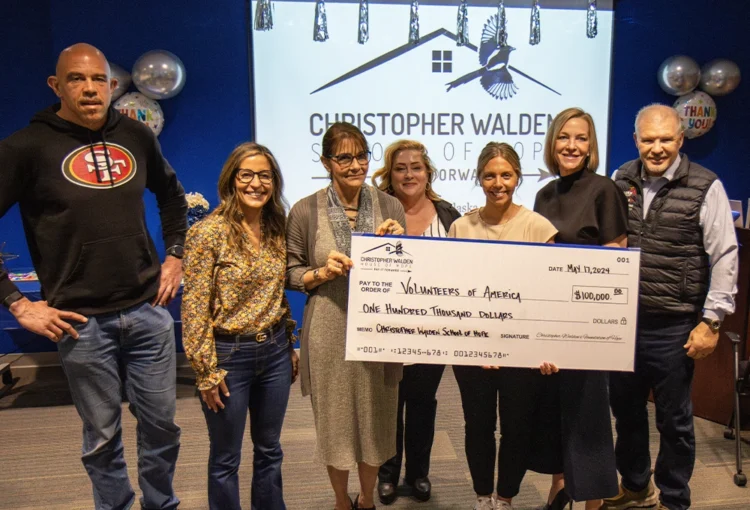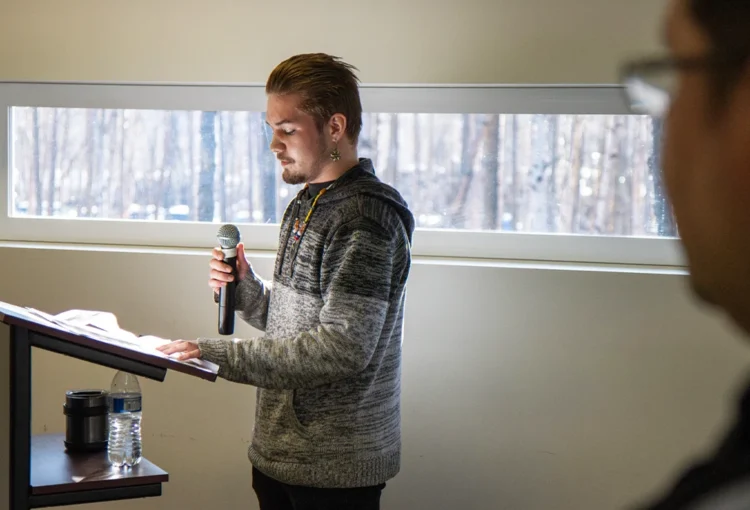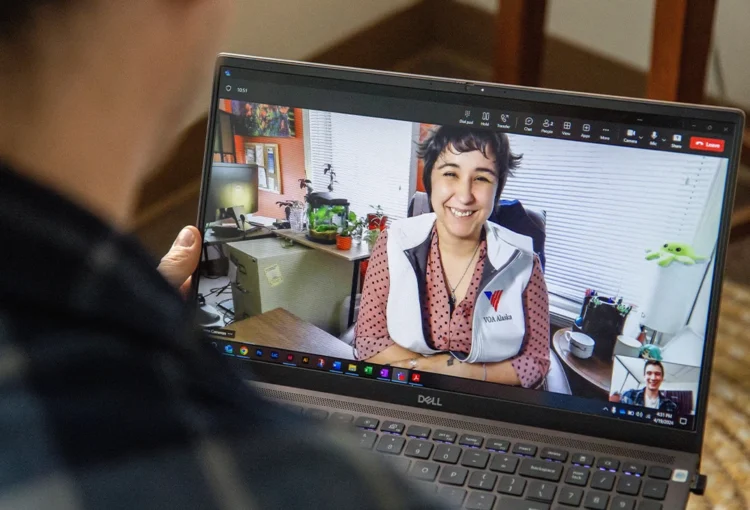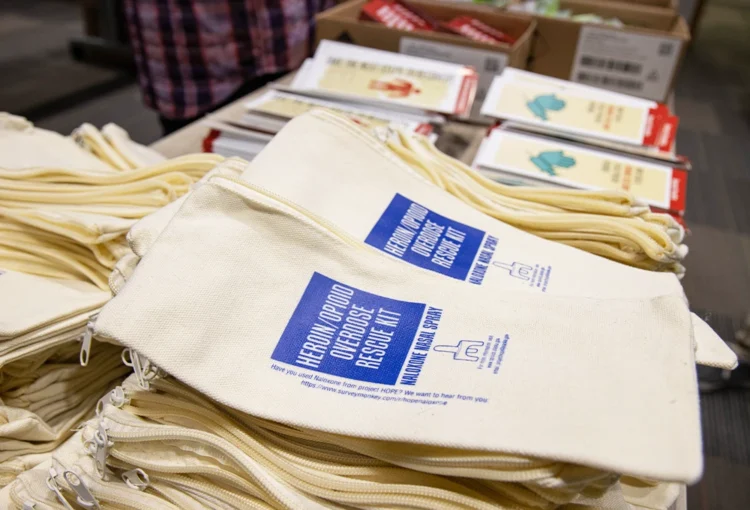Below is the extended version of “Stories of Impact: Supportive Housing,” which is featured in our 2021 Community Impact Report. Click here to view the report and find links to all of our Stories of Impact.
When am I going to eat? When can I take a shower? When can I get my clothes cleaned? These are the questions Topanga once asked herself every day for two years.
“You never really have a stable home,” Topanga, age 24, says of her time experiencing houselessness. “Because you’ll either get too many people in your camp and it gets too crowded, or the police come and say, ‘you got to move.’”
After transitioning between camps, cars, couches, and Covenant House, Topanga is celebrating more than a year now in her own one-bedroom apartment. She lives with her cat Izzy, works in a mail-distribution warehouse (she loves organizing stuff), and enjoys cross-stitching with her mom. Today, she wakes up wondering what traffic will be like on her way to work.
It’s a big win after a long, difficult road. “It’s hard to ask for help,” Topanga says, “especially when you’re super independent.” But then she realized, “I can’t do this on my own.”
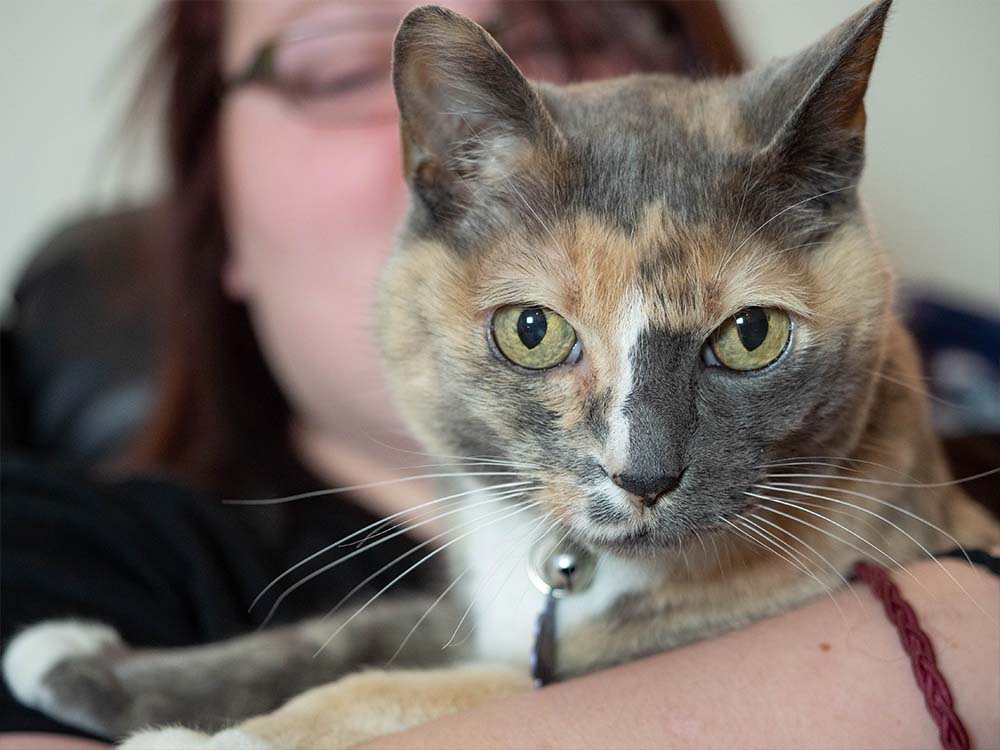
Finding a Supporting Network at VOA
It was through VOA Alaska’s outreach at Covenant House where Topanga found the help she was looking for. The Supportive Housing Program has an office at the local youth shelter. Staff visit weekly to connect with youth experiencing houselessness, especially those that are now aging out of the program but are not comfortable living in adult shelters.
Topanga connected with Chris Reppel, VOA Alaska’s lead clinician for the program, and found someone she could talk to. “That’s the hard thing,” she says, “finding that person you can trust.” The next step was meeting a case manager, who then helped her get setup with her apartment.
This support network became even more critical during the ongoing coronavirus pandemic. “I mean everybody remembers when they’re in their early 20s and how hard everything was,” Topanga says, but “it’s ten times harder now in a pandemic.”
Topanga explains she went through a “few spots where I was super tight on cash” and the VOA team helped her pay rent. When she contracted COVID-19 and couldn’t go to work, the VOA team helped her get groceries and cat food and pay her phone bill.
Having that support there for her every day reminds Topanga of “the good days” when her and her mom used to run around town on errands. She wants to be independent, but she now recognizes she needs the help, “because there was a lot of things I didn’t know. It helps to know someone’s gonna be there to steer me in the right direction.”
“Don’t Be Afraid to Ask for Help”
Looking back, Topanga wishes she could tell her past self to “just ask for help dude. Get it through your thick-skinned head!”
She’d be a little gentler with others in her situation, but still offers her advice bluntly: “No one’s gonna be mad at you for asking for help that you need. If you’re asking for help that you’re not willing to take, yeah, you’re wasting everybody’s time including your own. But don’t be afraid to ask for help. Because when help is given, you feel like a weight has been lifted off your shoulders.”
Asking for help lead to her finally getting and keeping her own apartment. It’s opened so many more opportunities to thrive. “Before I felt like I wasn’t doing anything, like I wasn’t going anywhere in life. Now, I feel like I have a stable foundation to start working towards my goals…because it’s hard to do when you don’t even have a place to call your own.”
A Reflection from Topanga’s Team
Supportive Housing is assisting those that are 18-24 years old (Transitional Aged Youth/Young Adults) struggling with houselessness. We help them secure their own housing using the housing-first model. We also provide wrap-around supports to include Intensive Case Management (ICM), Psychotherapy, Medication Management (as/if needed), Transitions Services, and Peer Outreach Services.
In assistance with Covenant House Alaska, Choosing Our Roots, Anchorage Coalition to End Homelessness, and other agencies, we are all working together to end Young Adult Homelessness.
There are many similar stories to Topanga’s where they struggle with the basic needs and without them, it is extremely difficult to move forward. It can also be a huge transition moving from houselessness or a shelter into an apartment, especially your first apartment in your own name. Having to get all the startup supplies, furniture, food, and everything else can be difficult in the beginning. Not to mention cost of living continues to go up for everyone. She has done an amazing job, utilizing the program, the wrap-around services, and working 110% to provide a better life for herself. The entire Supportive Housing team is super proud of her!
– Chris Reppel, Lead Mental Health Clinician

